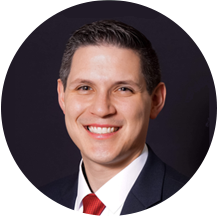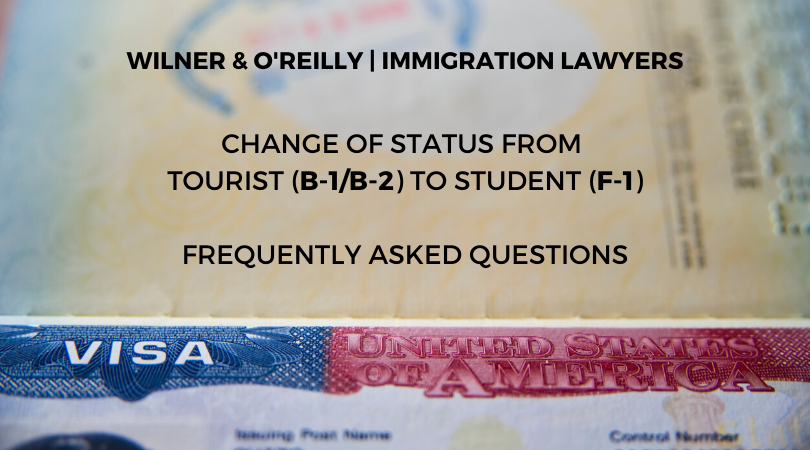- What are the latest rules regarding online studies for F-1 visas?
There are some temporary exemptions for the fall 2020 semester established by the SEVP due to the COVID-19 emergency. In summary, the exemptions provide that:
- F-1 students who are currently in the U.S. may not take a full online course load and remain in the United States. There will be no visas issued to students enrolled in schools or programs that are fully online for the fall 2020 semester.
- Students with current F-1 visas who are outside the country will not be allowed to reenter the U.S. if they will be taking a full online course load.
- Active F-1 students currently in the U.S. enrolled in a program that is fully online during the fall 2020 semester must depart the country or transfer to a school with some in-person instruction.
- If in the fall 2020 semester the school will resume all in-person instruction, the maximum amount of online classes an F-1 student is allowed to register is one (1) class or three (3) credit hours online.
- F-1 students attending schools that are adopting a hybrid model (mix of in-person and online classes) are allowed to take more than one (1) online class or more than three (3) credit hours online.
- F-1 students should contact their DSO to make sure their Form I-20 is updated. The Form I-20 should certify that the program is not entirely online, that the student is not taking an entirely online course load for the fall 2020 semester, and that the student is taking the minimum number of online classes required to make normal progress in their degree program.
PLEASE NOTE: Harvard University and Massachusetts Institute of Technology have filed a lawsuit requesting a federal court in Massachusetts to temporarily halt this rule. We will provide you with more updates as the case progresses.
- What is a change of status?
Generally, certain foreign citizens present in the United States under one nonimmigrant classification may seek to change status to another nonimmigrant classification if they meet certain requirements. This is called a “change of status” and it is done by filing an application with U.S. Citizenship and Immigration Services (USCIS).
The law has established different types of status depending on the nonimmigrant’s purpose. Tourists mostly enter the United States under the B-1/B-2 status and F-1 status is given to students who will enroll in a course of study. However, a nonimmigrant who submits an application to change status from B-1/B-2 to F-1 should wait until he or she receives a notice of approval from USCIS before they may begin their course of study.
- What are the requirements to change from tourist (B-1/B-2) to student status (F-1)?
You may apply to change your status from tourist to student while in the United States if:
- Your current B-1/B-2 status is still valid (you haven’t overstayed);
- You have not violated the terms or conditions of your B-1/B-2 status (for example, by working without authorization or attending a full-time course of study while on B-1/B-2 status); and,
- You have not committed any crimes or engaged in other actions that would make you ineligible.
- Can I change status to student if I entered under the Visa Waiver Program?
No. The Visa Waiver Program (VWP) enables most citizens or nationals of participating countries to travel to the United States for tourism or business for stays of 90 days or less without obtaining a visa. Travelers must have a valid Electronic System for Travel Authorization (ESTA) approval prior to travel. However, foreign citizens who enter the U.S. as a visitor through the VWP are not eligible for a change of status.
- Do I need to be accepted into a school before I can apply for a change of status?
Yes. In order to apply for a change of status to F-1, you must apply to and be accepted into a Student and Exchange Visitor Program (SEVP)-certified school. The Designated School Official (DSO) of the certified school will then issue you and your family dependents (if any) a Form I-20 (Certificate of Eligibility for Nonimmigrant Student Status).
- When should I apply for a change of status?
Processing times for change of status applications change from time to time. USCIS updates estimated processing times for each type of application on its website. Currently, USCIS reports that it is taking between 7 to 9 months for changes of status to the F academic student category, from the date they receive each application.
With this in mind, it is recommended that you apply around 90 days before your B-1/B-2 status expires to avoid a future “gap” in status (explained below). However, it is important to discuss the specific facts of each case. We are happy to help you determine the best route according to your current circumstances and your date of authorized stay.
- How do I know when my B-1/B-2 status expires?
Your B-1/B-2 status expires when your I-94 expires (meaning, when your authorized stay is over). There are two important expiration dates on your passport: the B-1/B-2 visa expiration date, and the date printed on the admission stamp or the Form I-94.
Visa Expiration Date: Your B-1/B-2 visa might be valid for 5 or 10 years. The time between your visa issuance and expiration dates is called your visa validity. The visa validity is the length of time you are permitted to enter the United States with that visa. However, the visa expiration date does not reflect how long you are authorized to stay in the U.S.
I-94 Expiration Date: When you arrive at a port of entry, the Customs and Border Protection (CBP) Officer will determine the length of your authorized stay in the United States under your B-1/B-2 visa. If your admission stamp or paper Form I-94 contains a specific date of authorized stay, then that is the date by which you must leave the United States and the date when your B-1/B-2 status expires.
- What is a “gap” in status and what does it mean to “bridge the gap”?
In order to change to student status, you must maintain a valid nonimmigrant status until USCIS makes a decision on your case or up to 30 days before the academic program or semester start date. A “gap” in status may occur in any of the following scenarios:
- Your B-1/B-2 status will expire more than 30 days before your F-1 program start date;
- Your B-1/B-2 status will expire soon and USCIS has still not made a decision on your case; or,
- Your application for change of status was approved but the program start date has already passed and your B-1/B-2 status expires more than 30 days before the start date of the following academic term or semester.
When there is a gap in status, you must find a way to maintain your B-1/B-2 status all the way up to the date that is at least 30 days before your program start date (this is called “bridging the gap”). For most people, this means filing a separate form with USCIS to extend their current B-1/B-2 status. This is why, in most cases, you will have to file both a request to change from B-1/B-2 status to F-1 and a request to extend your current B-1/B-2 status until your change of status is approved.
At Wilner & O’Reilly, we can help clarify whether you or your relatives may be able to change status from B-1/B-2 to F-1 and whether you meet all of the requirements. We are available to help you navigate through this process and help you pursue your goals of enrolling in a course of study in the United States. We offer free consultations at our offices in Orange, Fresno, Riverside, San Diego, Sacramento, and San Francisco, California; Salt Lake City and Orem, Utah; and Boise, Idaho.
ABOUT THE AUTHOR(S)
MAURICIO TORRES SANCHEZ – ATTORNEY

Mauricio Torres is an associate attorney at Wilner & O’Reilly | Immigration Lawyers in Salt Lake City, UT. He is admitted to the California State Bar. A native of Cali, Colombia, Mr. Torres graduated from the School of Law at the National University of Colombia where he earned his Bachelor of Laws. In addition, he earned a Master of Laws (LL.M.) from the J. Reuben Clark Law School at Brigham Young University in Provo, Utah. Having gone through several consular interviews and visa applications himself, Mr. Torres understands the difficulties many immigrants face, which allows him to help others navigate the immigration system. He devotes his practice to family-based immigration, nonimmigrant visas (such as U, T, student, and tourist visas), waiver applications, and consular interviews. Mr. Torres is fluent in English and Spanish.
RICHARD WILNER – FOUNDING PARTNER

Richard M. Wilner is a founding member of Wilner & O’Reilly|Immigration Lawyers and is Board Certified by the State Bar of California as a Specialist in Immigration and Nationality Law. He is admitted to practice law in the State of California and before the U.S. District Courts for the Central, Northern and Southern Districts of California, the Northern District of Texas, the U.S. Court of Appeals for the Ninth Circuit and the U.S. Supreme Court.Mr. Wilner has received the coveted Martindale-Hubbell AV Rating, the highest legal and ethical rating that one can receive from one’s peers in the legal community. Similarly, he has been awarded the title of Super Lawyer from 2007 to the present. He is best known for his work in advising Fortune 500 companies, middle and small market businesses, entrepreneurs and foreign nationals of extraordinary ability in athletics, arts, and sciences in the complex area of U.S. Immigration and Nationality Law.



Comments are closed.